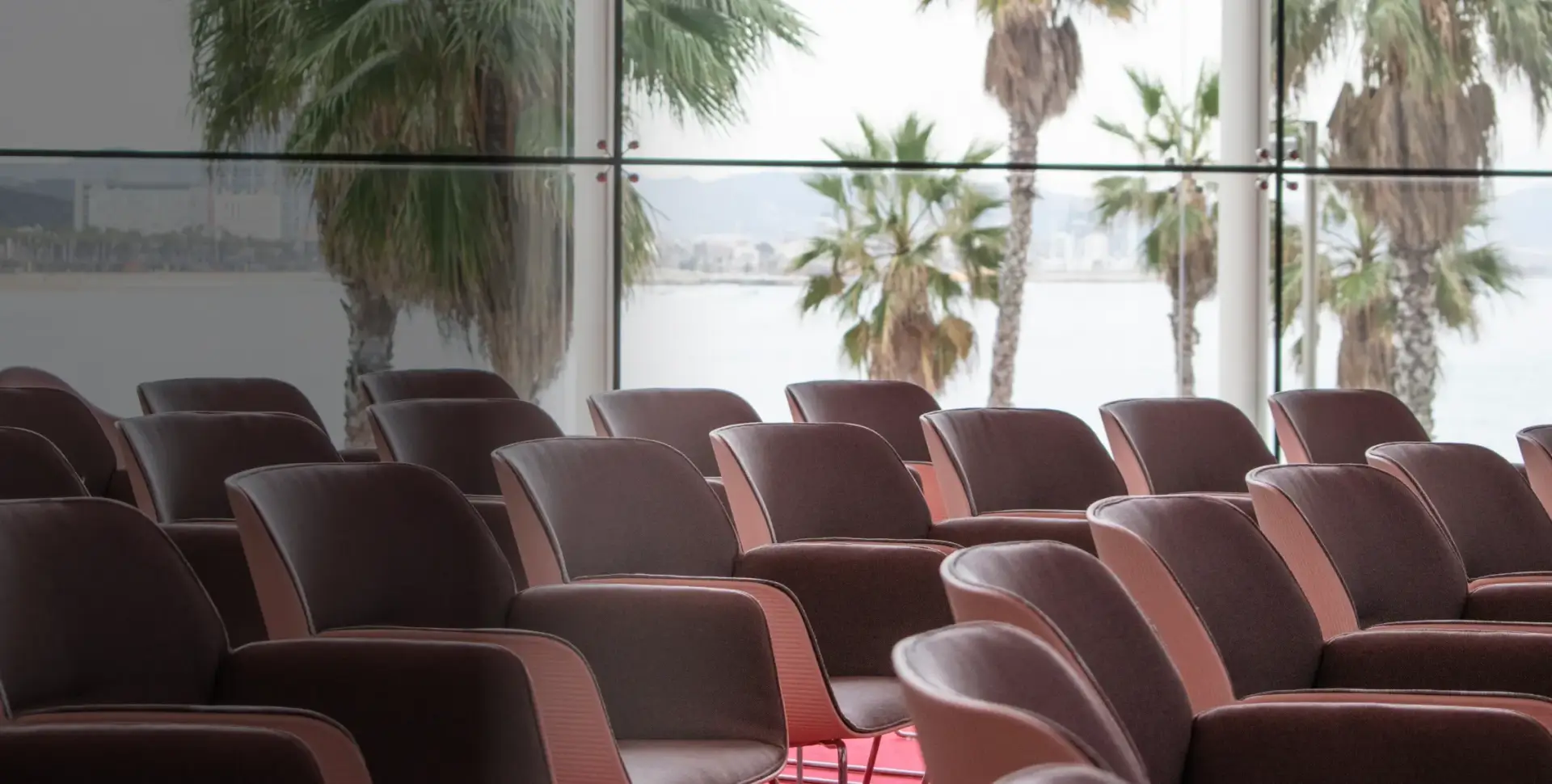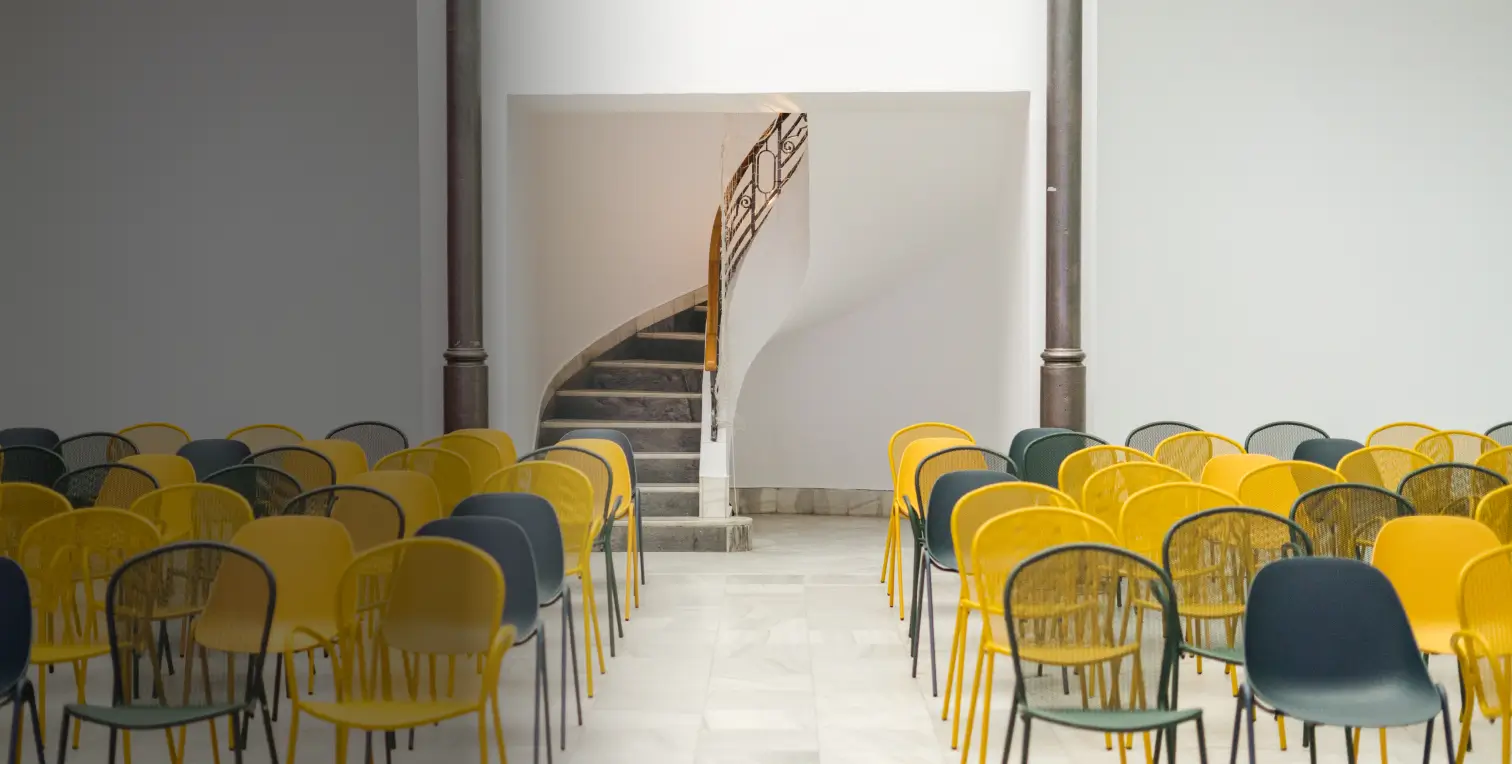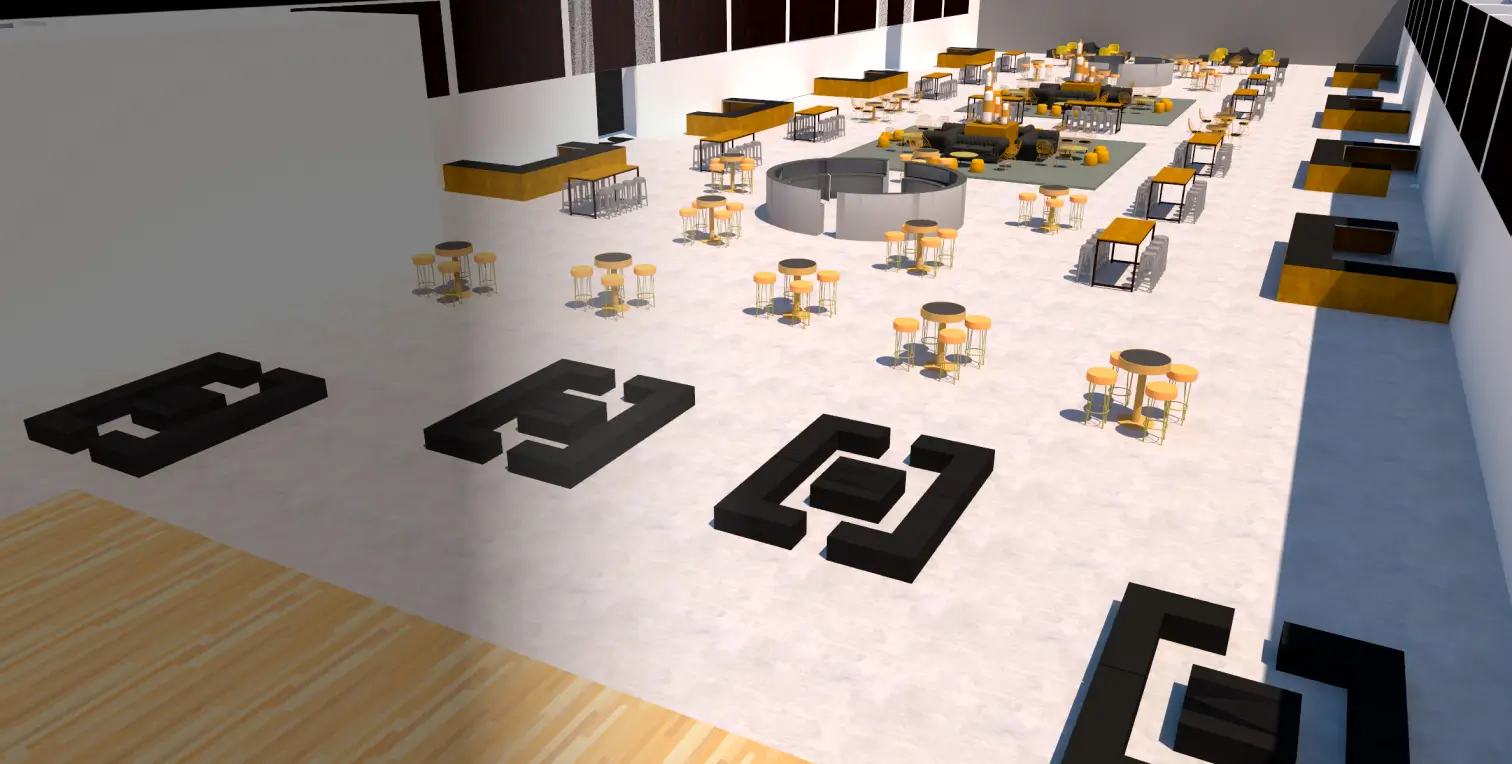Home / Events / Conventions and congresses / How to organize an awards ceremony?
How to organize an awards ceremony?
Organizing an awards ceremony can seem like a challenge if it is not approached with planning and attention to detail. In this enhanced guide you will discover how to organize a successful, engaging and memorable awards ceremony.
How to host an awards ceremony
Define objectives and scope
First, establish why you are holding the award ceremony: is it internal recognition, innovation promotion, external marketing?
Determine the audience (employees, customers, community). Defining objectives (visibility, corporate culture, inspiration) will help you direct efforts consistently.
Organizational team
Assign key tasks: logistics, communication, sponsorship, content, aesthetics and protocol. Ideally, each person in charge has direct experience in his or her area. A cohesive team increases efficiency and strengthens the collective experience.
Budget
Prepare a detailed budget: location, catering, audiovisuals, decoration, awards, communication and emergencies. With clear figures you can prioritize items and avoid improvising. Having a contingency fund (10-15%) is a good practice.
Date and location
Choose a date according to the availability of your guests and avoid periods of low attendance (long weekends or the end of the year).
The location should be aligned with the type of event: formal hall, auditorium, flexible space. Check accessibility, capacity and audiovisual equipment.
Program design
Develop a script with tight timing and smooth transitions. Usual structure:
- Welcome and presentation of the objective
- Presentation of nominees
- Presentation of each award (with brief nominee)
- Winners’ words
- Closing and networking.
Respect the announced times to maintain dynamism.
Communication and marketing
Draft previous messages (invitation, event website, social networks). Design visual elements: invitations, diplomas, decorative background. Consider alliances with sponsors or collaborators to amplify reach.
Technology and audiovisual equipment
Make a check list: microphones, lighting, projection, live transmission if necessary. Audiovisual rehearsal is essential to avoid technical errors on D-Day.
How to organize a fun awards ceremony
If your goal is an eye-catching and entertaining awards ceremony, incorporate creativity, rhythm and empathy. Here are ideas for a memorable event:
Charismatic presenters
A master of ceremonies with humor and spontaneity connects with the audience. Choose people who are naturals, who can handle improvisation and who can prepare light-hearted anecdotes related to the nominees.
Element of surprise
You can include:
- Short and emotional videos about nominees
- Holograms or multimedia interventions
- Comic sketches or live interventions.
This adds dynamism and differentiates your ceremony.
Photo and social media
Create a photocall with the leading brands of the event: your logos, sponsors or hashtags. Promote spontaneous photos during the gala and incorporate an Instagram Wall to show in real time the publications of the public.
Live Voting
Allow the public to give their opinion in some categories. Use apps or QR codes for instant voting. This generates excitement and engagement.
Entertainment and music
Musical interludes or short performances add rhythm. Consider DJ, local band or dance. Even a short monologue between blocks can maintain interest.
Themed decoration
Customize the scenery according to the values of the event: corporate colors, creative props, branded projections. A visually coherent atmosphere supports the relaxed ambiance.
Original awards
Beyond standard trophies, consider: personalized statuettes, artistic reproductions, experiences or creative mentions: “Most unexpected award”. Create categories that evoke emotion and recognition.
Spectacular Closing
End with a memorable finale: a short show, a collective toast, a raffle of souvenirs or an invitation to an after-party. This way you prolong the experience and encourage networking.
Step-by-step action plan
To organize a successful awards ceremony, start at least three months in advance by defining the objectives, audience and budget.
Then select the right date and venue, and form a team for each key area (logistics, communication, content).
Two months before, focus on production: design of the space, visual elements, audiovisual and event script.
One month before, launch external communication: invitations, event website and social networks, ensuring visual coherence and institutional tone.
A week before the event, it conducts dress rehearsals with the entire technical team and presenters, adjusting the timing and verifying that each part is coordinated.
On the day of the event, follow the established program, taking care of timing, transitions and dynamism.
After the event, dedicate one or two days to thank the participants, publish content on networks and collect images or videos of the event. This follow-up enhances the perception of professionalism and strengthens the connection with the audience.
Best practices
- Ask for anonymous feedback after the event. It helps you evaluate impact and perceptions.
- Include quotes from participants, real testimonials or recognized figures.
- Publish verified results and statistics: number of attendees, interactions, voting. Reinforce transparency.
- Use multimedia content (videos, photos) with captions and rich descriptions (SEO).
- Links to official resources: articles, award rules, institutional partners.
Sustainable and accessible alternatives
- Offer hybrid version: invite a virtual audience and broadcast the event.
- Include sign language interpreter or live subtitling.
- Take care of sustainability: recyclable materials, responsible catering.
- Adapt signage for people with visual impairments or reduced mobility.
Summary for organizing a successful event
Organizing a successful, engaging and efficient event involves:
- Clarity of purpose
- Professional planning
- Fun and emotional elements
- Effective communication
- Measurement and continuous improvement.
With these steps you will know how to organize a coherent, dynamic and high-impact awards ceremony.






















